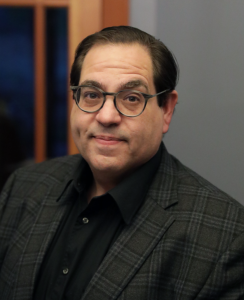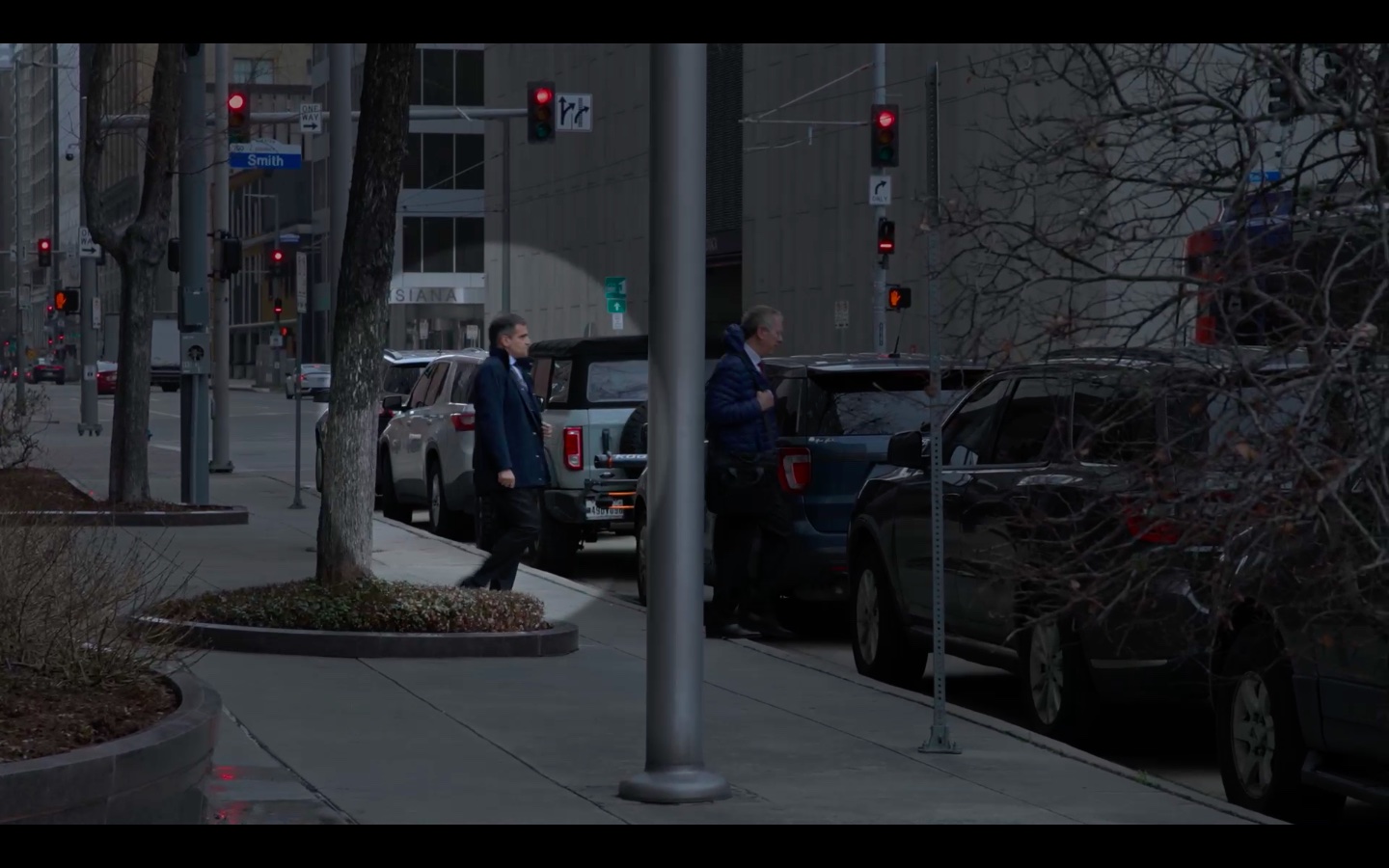Is the practice of multinational corporations paying bribes to corrupt foreign governments just a cost of doing business in the global economy?
Wesbrook Place resident Peter Klein, an Emmy Award-winning director, producer, and professor of journalism at UBC since 2005, recently delved into the murky world of corruption and bribery in the corporate world with the film, Bribe, Inc.
It’s a thrilling documentary that follows an investigative journalist around the world as he examines a Monaco-based company that facilitated the payment of multi-million dollar bribes by multinational petroleum corporations to oil-rich states.
Klein took part in a campus screening of the documentary in March this year, with the event also doubling up as a celebration to mark the 25th anniversary of UBC’s School of Journalism, Writing, and Media.
Bribe, Inc. also had Klein examining society’s views on bribery and corruption, and how we account with the social costs of corporate criminal activity.
The Campus Resident sat down with him to learn more about his film and his journalism work.
What prompted you to make this film?
At UBC, we host the Global Reporting Center, and many projects that we’ve done cover everything from terrorism to illegal logging to illegal fishing to gunrunning to human smuggling. All of these illicit things around the world share one common thing: bribery.
When I learned about this unbelievable bribery case, I realized I had always avoided talking about bribery because it just seemed like kind of a part of a story, but it wasn’t the story.
I thought it would be interesting to just lean into that specific aspect of this bigger problem, and we have this incredible story with twists and turns and characters. It was ripe for a film. A lot of UBC alumni worked on it, and while it wasn’t a project of UBC, it had a strong connection to campus.
How did you come across the story?
One of the people in the film is Alexandra Wrage, an anti-corruption activist who lives on campus. She’s the president and founder of Trace International, which is an anti-corruption organization that works with companies to help them stay onside with legal and ethical obligations and complying with the law around corruption and bribery.
They got sort of sucked into this story when the bad guys in the documentary – the owners of this company called Unaoil – essentially tricked the organization to give them certification for being in compliance with anti-bribery laws by getting real letters from the CEOs of major corporations who were in bed with them.
She obviously knew about it, so she told me about it. I started digging, and realized, yeah, this is an incredible story.
How did you manage to peel back the layers?
A whistleblower, out of the blue, sent this letter to Australian investigative journalist Nick McKenzie, and he said, ‘Listen, if you want to get all the details, put an ad in the French newspaper, Le Figaro’. He gave him some very coded language, like, advertise for a villa called Monte Cristo, because he was a fan of The Count of Monte Cristo.
He put the ad in the newspaper and the whistleblower called him, and so Nick flew all the way over to France and met with him and eventually earned his trust. And the guy gave him over 300,000 pages of emails that detailed all the criminality. Without the whistleblower, there’s no story.
Describe your role and how you got involved?
Nick wrote a huge story for the Sydney Morning Herald, so he had broken the first part of the story. Then I partnered up with him and continued reporting it. And there were all these twists and turns that happened to the case, long after the story broke.
His story was about Unaoil doing this criminal activity, and he gave the British authorities a heads up about it. They went to Monaco, and they raided the company’s offices, and took all their hard drives and took the guys into custody and interviewed them. Our film is about what happened after his story was published.
Is there anything that you uncovered that you did not expect?
Totally. When the Brits got the file, they were like, ‘Great, here’s all the evidence’. I think it was the largest case they’d ever had in the UK Serious Fraud Office. And when they’re about to arrest the guys, they fled.
One of them went to Italy. And in Italy, the Brits had put out a red notice, so the guy got stopped at the airport in Rome. But then the guy who was captured, unbeknownst to anybody, called the FBI and he made a deal on the side with the Americans, saying, ‘Listen, these Brits want to get me. They want to throw me in jail. I don’t want to go to jail. I have all this information on all these companies that were in bed with us bribing. You guys can go after the companies and get huge fines from them.’
(SPOILER ALERT – The Americans basically stole the case away from the Brits and then ended up fining the companies a billion dollars, but the bad guys pretty much got away).
During the screening, what kind of a response did you get from the audience?
It’s always fun watching the film with audiences, because you see their reactions, you hear their gasps, and you kind of sense their frustration and their anger.
Everybody sort of ends up looking bad in this film. None of the bad guys would talk to us, as well as the US Department of Justice, the British Serious Fraud Office, because they all look bad.
I’ve had a few screenings now, and people have commented, saying, ‘You know, I really love the film, but man, the ending really made me depressed’.
Do you draw a conclusion from that, about society and its relationship with corruption and bribery?
One of the things we were trying to do with this project was to underscore that bribery is not a victimless crime, it’s not the cost of doing business.
Our film predated the current Trump administration, but we do get into the previous Trump administration and how the President was lobbying for getting rid of the Foreign Corrupt Practices Act. He felt like it was a law that created an uneven playing field for American companies, that they couldn’t bribe when Russia and China and everybody else is bribing. And you know, now we see he’s essentially denatured the act, and he’s not going to be enforcing it in his current administration.
So it does sort of fit a general sense that bribery and corruption doesn’t really matter. We tried to make it clear that it does matter, that it’s central to so many of the ills in the world. And we give some very specific examples.
How did this investigation differ compared to some of the other high-profile investigations that you’ve done in your journalism career?
The challenge with this one was that it didn’t immediately jump out as relevant.
If I’m doing something on illegal logging, I’m going to assume that a lot of people watching or reading will agree that we shouldn’t be randomly cutting trees down and cutting old growth forest or going into indigenous land and stealing wood. They’re already in the camp with me, right?
When it comes to bribery and corruption, that was the hard part. It’s so amorphous.
For something like terrorism or human trafficking, it kind of tugs on your heartstrings, or you have some reference point for it. With bribery and corruption, it’s just international business and meetings and boardrooms. It’s just so far away, so that was the tough part.
Do you have some final comments for our readers?
I’ve been at UBC for 20 years, but I’ve continued working as a journalist. I’ve kept an office in New York. I’ve been back and forth a lot and there’s such a diversity of people with expertise in the campus community. They’re not shy about telling me and other journalists that we may have done a bad job or got the story wrong.
It’s the kind of pushback that I typically don’t get in the news bubble world, where everyone loves to congratulate each other on doing a great story.
But here, I’m running into people at cafes, in classrooms, and on the street who will tell me we aren’t getting it, not totally understanding the story, or missing some academic context.
We’re not doing academic work – that’s not our goal – but because of that scrutiny and having that expertise, what we’ll do often is partner with people with expertise, not just go to them for a quote, but bring them into the newsroom. That’s kind of exciting, because it’s a new way of doing journalism.

(This interview was edited for length and condensed.)
